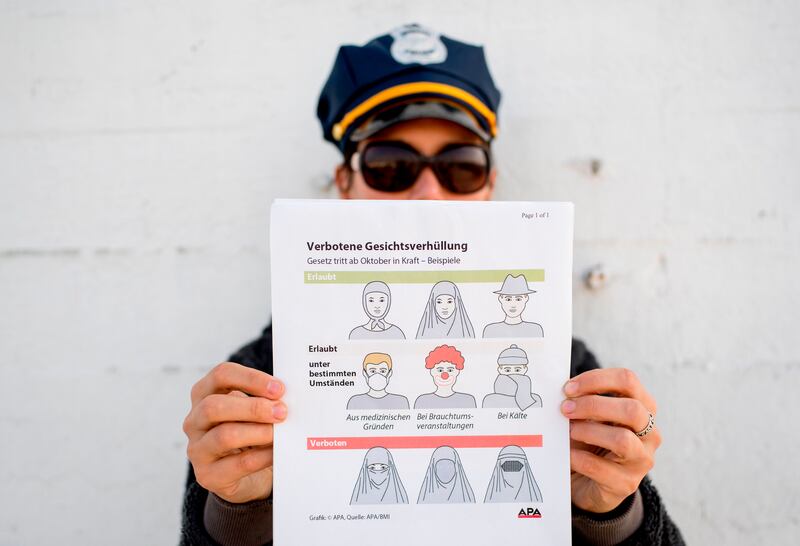A law prohibiting any kind of full-face covering takes effect on Sunday in Austria, where strong support for the ban signals potential political upheaval in the upcoming national election.
Parties campaigning on an anti-migrant message are poised to win on October 15 and to form a coalition government. Such a rightward swing in a country that's had centrist governments almost consistently since World War Two could have repercussions across Europe, emboldening politicians who take a hard line on Islam and immigration.
Last week, the right-wing, anti-migrant Alternative for Germany party won seats in Germany's national parliament for the first time after featuring posters with the slogan "Burkas? We prefer bikinis" in its campaign.
The Austrian law — officially called "Prohibition for the Covering of the Face" but better known as the "Burka Ban" — forbids off-slope ski masks, surgical masks outside hospitals and party masks in public. Violations carry a possible fine of 150 euros (Dh651) and police are authorised to use force with people who resist showing their faces.
But its popular name reflects the most prevalent association. Burkas are rare in Austria but support for the law is strong nonetheless, reflecting anti-Muslim attitudes in the predominantly Catholic country.
_______________
Read more:
[ Muslim-baiter politician wears burka in Australia's Senate ]
[ Norway to ban full-face veils in all schools ]
[ Reversal of the burkini ban can't undo damage to France's image ]
_______________
"It's not right that those living here don't show their faces," said Emma Schwaiger, who expressed support for the ban on the streets of Vienna.
Five in seven of those who said they backed the law also said they will vote for the two parties that critics link to anti-Muslim sentiment — the traditionally xenophobic Freedom Party and the People's Party. The People's Party avoids the Freedom Party's inflammatory talk, but has swung radically from the centre under new leader, Sebastian Kurz, to echo that party's positions on migration.
The Social Democratic Party, currently the majority partner in the government coalition with the People's Party, has been left struggling.
Under chancellor Christian Kern, the Social Democrats are focusing on social topics and claiming credit for Austria's recent economic upturn. But Mr Kern's message is not coming across well.
A Unique Research poll of 1,500 respondents published on Thursday showed the Social Democrats with 27 per cent support, ahead of the Freedom Party at 25 per cent but trailing the People's Party with 34 per cent. The poll had a margin of error of 2.5 percentage points.






